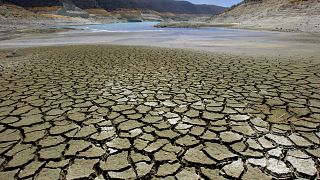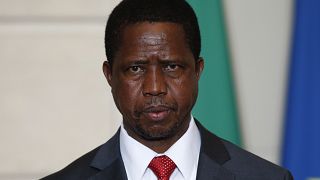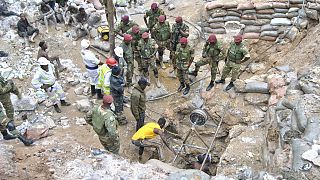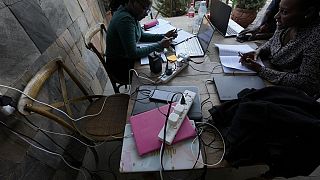Zambia
Monze village in southern Zambia has about 43 health facilities but in times of crisis some residents can't embark on sometimes long journeys for a consultation.
Some of these communities live hours from the nearest health facility - in Hakukunla village, the nearest clinic is at least 30 km away. Taking services to communities is critical amid concerns that women and girls are prioritizing the search for food and water instead of their health.
Zambia is currently going through its driest agricultural season in more than 40 years.
As crops have been wiped out and livestock have died, poverty is deepening.
Today, a field coordinator raises awareness on ending child marriages and gender-based violence.
Leonard Zulu, a program Analyst at UNFPA Zambia, explains how the climate crisis affected women's health.
“In time of crisis and drought like this, the health of women Women may not prioritize going to the health facility in times of the crisis, the drought like this, but instead, [they] would prioritize looking for food. So this has the possibility of impacting their health. UNFPA is supporting the Ministry of Health to conduct the mobile clinics, the health outreach activities, so that they can provide these services to women and girls, especially in this situation.”
Around 9.8 million people in 84 of Zambia’s 166 districts are affected – and 6.6 million people in the country need immediate humanitarian assistance.
Out of desperation, girls are reported to be dropping out of school and being forcibly married.
Forced marriages and sexual exploitation exposes women and girls to unintended pregnancies and increases the risk of HIV. Nurse Loveness Miyoba provides antiretroviral therapy (ART).
“Today, we are providing ART (Antiretroviral therapy for people with HIV). We are providing antenatal services. We are also providing children's clinic services, also family planning and a bit of OPD (outpatient services).”
UNFPA is also supporting 60 Safe Motherhood Action Group volunteers to provide information on safe motherhood to families as well as two national toll-free lines that provide information on maternal health and gender-based violence services.
UNFPA is appealing for $5.4 million to support this work. Immediate, flexible funding is urgently needed to meet the needs of the most vulnerable women and girls.











01:08
Malawi-Zambia communities threaten legal action over elephant relocation
04:52
Acid spill devastates Zambia’s Kafue River
03:46
With 500 species, Moroccan exotic garden an oasis of biodiversity
03:52
Amid drought, King urges Moroccans not to kill sheep for Eid al-Adha
01:00
State of emegency declared as Nazca hit by severe flooding and landslides
04:00
Consecutive droughts Impact Morocco's livestock, reports Minister of Agriculture